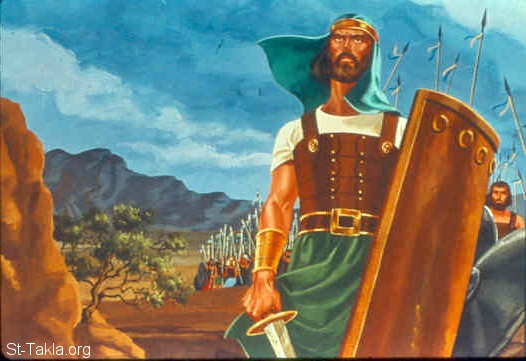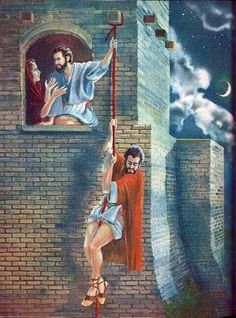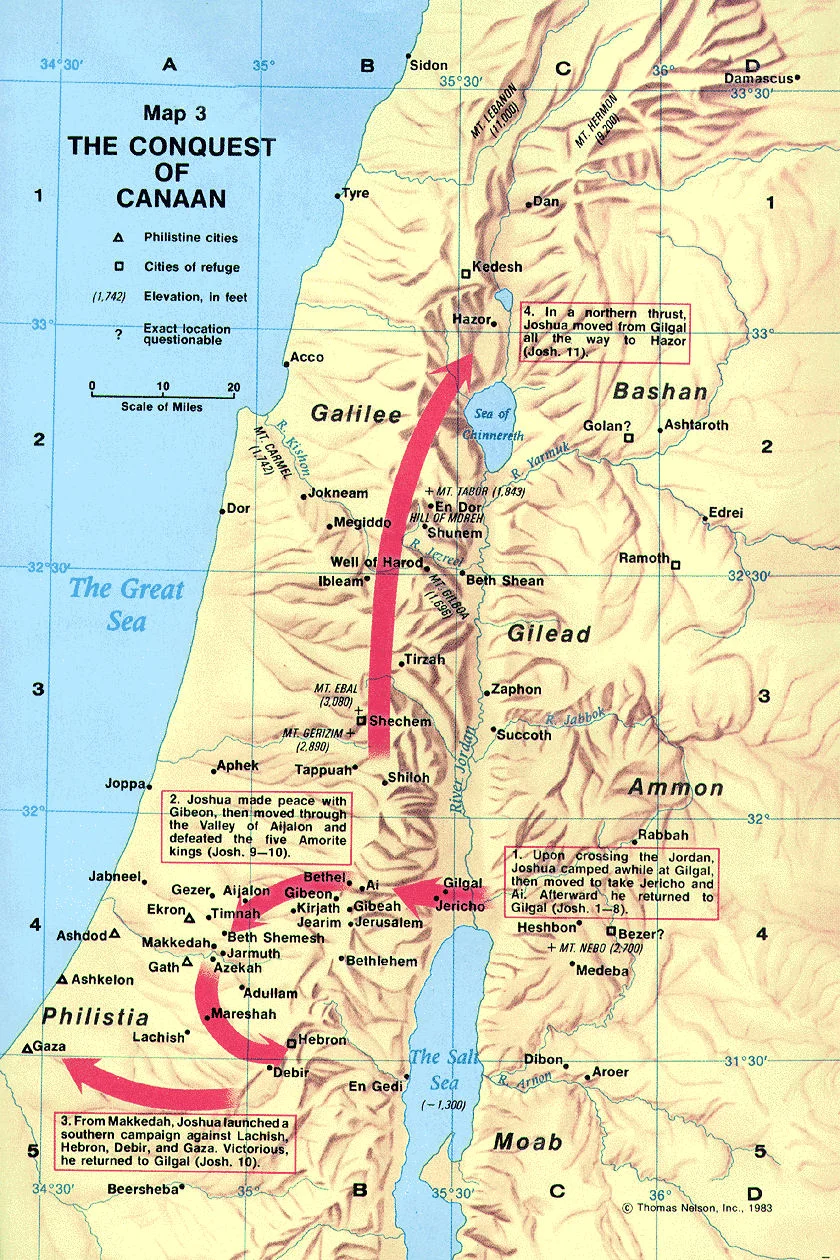Week 5 Study Page - Joshua 1-24
Week #5 Study Page
Joshua 1-24
Sunday: Joshua 1-3
Monday: Joshua 4-7
Tuesday: Joshua 8-10
Wednesday: Joshua 11-13
Thursday: Joshua 14-17
Friday: Joshua 18-20
Saturday: Joshua 21-24
Degree of difficulty: 6 out of 10 (Explanation:) The first half of Joshua is pretty exciting. there is the long-awaited fulfillment of the promise that the Israelites will inhabit the promised land, the delicate transfer of power from the heroic Moses to his warrior understudy Joshua, and the action scenes of the conquest of Canaan - the land that God had promised to the Israelites. However, there are about 10 chapters in this book devoted to describing the borders and territories of each tribe of Israel. These lists of towns and geographic locations require a map with an index and a bottle of Advil, if you really want to dig into it. My advice, read quickly and spend a couple of minutes looking at a map of the tribes of Israel below to get a sense for where they ended up.
About the Book
JOSHUA
Date of Authorship: Contemporary to the story, 14th-13th century BC. Modern Biblical scholarship classifies Joshua as Deuteronomic history which includes all the books of the bible from Joshua (or Deuteronomy) to 2nd Kings. Some have hypothesized that these books were edited from the earlier source material to emphasize covenant faithfulness in the wake of the destruction and exile of Judah in the 6th Century BC, or possibly during Josiah's reign in the 7th century. for a quick defense of the contemporary authorship (written at the same time the events occurred) of Joshua, you can read this article: https://bible.org/article/introduction-book-joshua
Purpose: The book of Joshua tells the story of how God fulfilled his promise to Abraham to give the Promised Land to his descendants. It teaches the Israelites of later generations how faithfulness to God's covenant and commands results in success, while unfaithfulness results in defeat and pain. The 10-chapter long description of territory in this book, which seems dreadfully boring to the modern reader, would have been critically important to the contemporary or later Israelite reader. It answers the questions of which land belongs to their family and why.
Books/story that we have skipped:
Leviticus - the ceremonial law
Numbers - the census of the people; the story of the wanderings in the wilderness
Deuteronomy - the law rehearsed and the death of Moses
things you should know
After leaving Mt. Sinai, where the Israelites received the covenant Law, they traveled to the southern border of the Promised Land and sent 12 spies to explore it. The spies returned with great reports about the bounty of the land, but 10 of them were too terrified by the land’s inhabitants (the Canaanites) to advise going in. Because of this report, the Israelite community rebelled against God. God punished their rebellion by sentencing them to wander in the wilderness, outside of the Promised Land, for forty years until the time when all in the community, save Joshua and Caleb (the 2 good spies) over the age of 20 had died.
Moses was not allowed to enter the promised land because of an act of disobedience (possibly pride) recorded in Numbers 20:8-12. In the last chapter before our reading starts, God shows Moses the promised land by taking him up Mt. Pisgah on the east side of the Jordan River, and Moses dies,
the tribes of Reuben, Gad, and Manasseh (a half-tribe from the Son's of Joseph) really liked the land that they wandered in on the east side of the Jordan River, before entering the Promised Land. They ask to receive this land as their inheritance, and the request is granted so long as they lead the military campaign for the rest of Israel to conquer the Promised Land on the east side of the Jordan River.
As you read Notes
Short Ones:
In Joshua 5:2 when God tells Joshua to "circumcise the Israelites again" it is probably best read as "resume the practice of circumcising Israelite males," a practice that they had apparently abandoned in the wilderness.
the hill on which the Israelites resumed this practice is called "Gibbeath Haaraloth" which literally means "hill of foreskins" and there is no way that was not getting included in the study notes.
in Joshua 5:6 the Promised Land is referred to as "land flowing with milk and honey." the word translated to "honey" in this passage and others containing this phrase likely refers to the syrup of dates rather than bees' honey as we would naturally assume.
the walls of Jericho at the time of its destruction (City 4, Late Bronze period) were constructed of stone for the first 15 feet, and topped by an additional eight feet of mud-brick.
We're used to thinking of Jerusalem as the cultural and religious center of Israel, but at this early stage in Israelite history, Shiloh is the primary place of meeting and worship (see Joshua 18:1)
there are 4 major covenant renewal ceremonies in the Old Testament. Exodus 24:1-8, 2 Kings 23, Nehemiah 8:5-9, and the one we are reading here in Joshua 24:1-27
Joshua Son of Nun - a Character Study
Joshua is a warrior. the first time we read of him is in Exodus 17 in the battle against the Amalekites. While Moses was above the battle holding up his hands, Joshua was the leader of the troops in the battle below him. In that same story, the Bible foreshadows the leadership role that Joshua will one day take on. After the battle, God tells Moses to make sure that Joshua knows that the Amalekites are to be, one day, wiped off of the earth.
Joshua is one of the 12 spies sent in to explore the promised land in Numbers 13 (which we skipped). There, he is referred to as "Hoshea son of Nun" (Moses changed his name to Joshua) and he represents the tribe of Ephraim - meaning he is descended from Joseph. He is one of only two of these twelve spies who trust the Lord to lead them victoriously into the land (Caleb being the other).
Joshua has an incredible burden. He must lead the Israelites after Moses, the great hero of the Israelite story, and a man with a special status before God. God helps Joshua. By parting the Jordan River, God shows the Israelites that Joshua carries the same authority as his predecessor Moses. Joshua belongs to a unique category of bible heroes who have no faults recorded in scripture (the Gibeonite deception is not described as his fault). Joseph is one of the great and admirable characters of the Bible
Joshua 2 - Rahab the Prostitute Hero
Before the Israelites attack Jericho, Joshua sends ahead two spies. While in Jericho these spies take refuge in the house of a prostitute named Rahab. She knows that the Lord has given the Israelites the city and she protects the two spies from the people of Jericho who are trying to find and kill them. In return for her help, Rehab and her family are the only people in Jericho spared from the sword.
Rahab's story in the bible extends far beyond the account of the battle of Jericho. Rahab ends up marrying Salmon, one of the spies that she protected in Jericho, and their son Boaz, marries Ruth (recorded in the book of Ruth). Through this line is traced the genealogy of Joseph, the husband of Mary, mother of Jesus. Rahab's faith is praised twice in the New Testament; once in Hebrews 11:31, and again in James 2:25.
Joshua 8:24-25 - The Annihilation of Canaan
Ai is the second city-full of people that the Israelites completely annihilate. Joshua 8:24-25 tells us about the defeat of this city
"When Israel had finished killing all the men of Ai in the fields and in the wilderness where they had chased them, and when every one of them had been put to the sword, all the Israelites returned to Ai and killed those who were in it. Twelve thousand men and women fell that day—all the people of Ai."
It is hard to imagine how God could command such an act by his people. here are a few considerations to keep in mind when reading about the violent conquest of Canaan.
God had condemned the Canaanite peoples for gross evil. Read Leviticus 18, bracketing the list of seemingly obvious laws about sexual relations is the testimony from God that the Canaanites in the land before them had violated these commands and done great evil in the sight of the Lord. As a result of this sin of the Canaanites, God says that he is "vomiting them out" of the land. In Deuteronomy 12:29-31 we learn that the Canaanites had detestable religious practices that included burning their children as sacrifices to their gods.
This judgment, carried out upon the Canaanites, is not as much an action committed by the Israelites, as it is the the hand of God. Remember the meeting of Joshua and the "commander of the Lord's army" in Joshua 5:13-15. Joshua asks this commander, "Are you for us or our enemies" the commander replies "Neither," making it very clear that the invasion that ensues is the work and will of God
Finally, the totality of the annihilation may be exaggerated in some circumstances. An example of this are the cities of Hebron and Debir where the book of Joshua records that "Everyone in it they totally destroyed" (Joshua 10:36-39) but later in the book we learn that there are still Canaanite people living in those cities (Joshua 15:13-15) Hyperbole when describing military victory is a common and normal feature of ancient history accounts. It would have been abjectly strange for God's word to have not employed it given the literary norms of that age and the culture that the ancient Israelites lived in.
Joshua 13-22 - The Division of Land.
As mentioned earlier, this section can be very difficult to read. It is literally a map with no pictures. The archaeological science of identifying all of these cities and boundary markers is still very active and difficult, but this is what is being depicted (picture) these boundaries would have been crucially important to the Israelites in the time of Joshua, even though the reading seems tedious to us.
Study Questions:
In Joshua 1:6, God tells Joshua to "be strong and courageous," what reasons did Joshua have to possess such qualities? are those reasons as true for you as they were for Joshua?
In Joshua 4, Joshua instructs each tribe of Israel to take a stone from the Jordan riverbed to be used in an altar. Why was this helpful/instructive? do you have anything in your house/life that serves as a reminder of God's provision?
In Joshua 8:1, The Israelites had just suffered a surprising military defeat and found a scandalous violation of God's commands in their community. God then tells Joshua "Do not be afraid; do not be discouraged... for I have delivered into your hands the king of Ai." Has God ever picked you up from a low moment and given you something that you needed? Why did God forgive the Israelites in this instance?
In Joshua 11:14, the Israelites take possession of the plunder from the cities that God gives them victory over. Earlier, in the conquest of Jericho, God did not allow this. Why do you think God has changed the policy here? What can we learn about God about when he does and does not let the Israelites plunder their conquests?
In Joshua 15:63, we learn that the Israelites could not dislodge the Jebusites from Jerusalem, despite the fact that they were commanded to drive them out from the land. we're not told how God feels about this, how do you think God regarded this (and other - 16:10, 17:12) failures?
In Joshua 19:49-50, Joshua is given his inheritance in the land as Israel's leader. It is small, and not a significant city in Canaan. what can we learn about Joshua's leadership here? and what have we learned from Joshua as a character?
In Joshua 24:15, Joshua says some of the most famous words in the bible, "As for me and my household, we will serve the Lord." are you ready to make the same commitment as Joshua? Is there anything that needs to change in your heart or household before that can be true?





